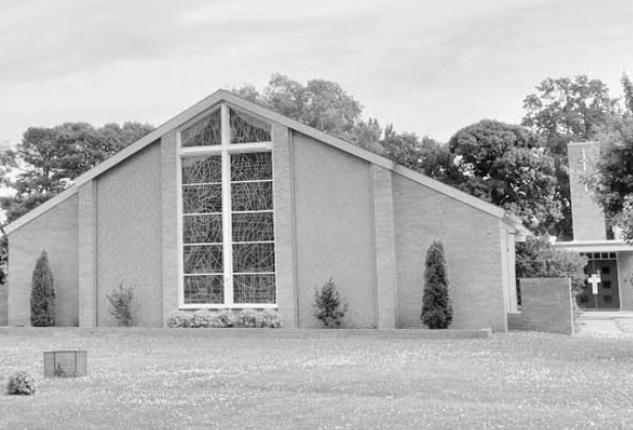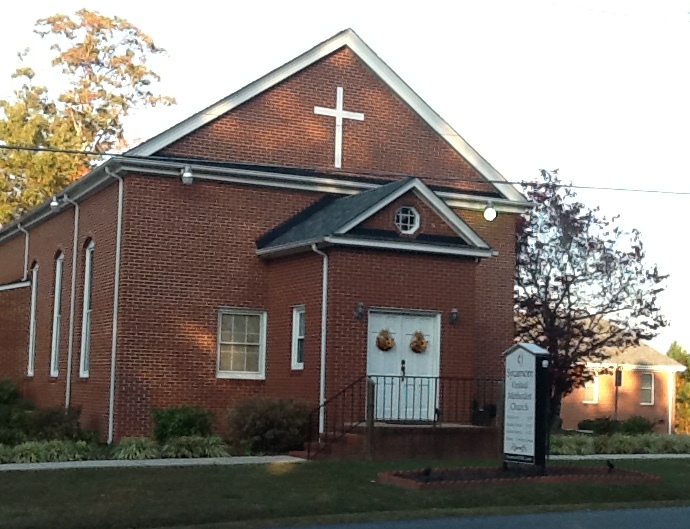When we asunder part
it causes inward pain
but we shall still be joined in heart
and hope to meet again.
Blest Be the Tie That Binds
#557, The United Methodist Hymnal
Each time I pray at the end of a disaffiliation presentation or a disaffiliation church conference, I end the prayer with the lyric quoted above. I try to remind those gathered together that by the power of the Holy Spirit working in and through the body of Christ, come what may, we are still somehow one. And then, during the drive home, hollow but hopeful, I think about what all of this means, and what it means for Christians around the world and throughout history, to be one as Jesus prays for us to be in his Farewell Discourse in the Gospel of John.
I have, quite literally, driven thousands of miles alone, mulling this over, trying to discern how history and generations yet unborn will regard us. I remember, as a young twenty-something sitting beneath the florescent lights of seminary classrooms hearing lectures about the schisms of centuries past. I remember studying in the musty stacks of the Duke Divinity School library, reading about the Christians of ages past who died a martyr’s death rather than compromise their principles, and I think about future students of theology, decades or centuries from now, studying for their final exam in church history, looking back at us.
And so, we prepare for the upcoming special Annual Conference on May 6, where 64 churches will come seeking ratification of their discernment to disaffiliate from the United Methodist Church over matters of conscience related to human sexuality. These churches have prayed, discerned, organized, worked, and prepared for this moment, as they embark on a new mission to be and make disciples of Jesus Christ without the familiar network of support they have heretofore relied upon as they depart the connection that they helped to create and maintain.
I have been a pastor since I was twenty-five years old. Pastoral ministry is the only job I have ever had that was not minimum wage, where the interview questions were more difficult than “Do you think you can operate the register?” and “Are you available nights and weekends?” My time on this earth will be marked by my children and my churches, and I have to admit, it is very difficult to watch individuals and congregations regard what has been my life’s work and turn away from it. It never gets any easier.
And still, Christ is with us, in our midst, preparing us with a future with hope.
Following this May 6, 2023 special Annual Conference, there will be one more opportunity for ratifications of disaffiliations under Paragraph 2553. Paragraph 2553.2 (approved in 2019) states:
“2. Time Limits—The choice by a local church to disaffiliate with The United Methodist Church under this paragraph shall be made in sufficient time for the process for exiting the denomination to be complete prior to December 31, 2023. The provisions of ¶2553 expire on December 31, 2023 and shall not be used after that date.”
The Virginia Conference’s final ratifying Annual Conference will be held on Saturday, October 7, 2023(virtually). All process, documents and deposits must be received 30 days prior, by September 7, 2023. In order for a local church to complete the disaffiliation process by the timeframe established by the Book of Discipline and the VAUMC Disaffiliation Process, a local church will need to have had their Congregational Information meeting with me no later than July 7, 2023.
After Paragraph 2553 sunsets on December 31, 2023, we will have a pause on disaffiliations until after General Conference meets (April 23-May 3, 2024 in Charlotte, NC). It is important to remember that the General Conference is the only body that can amend our Book of Discipline, including ¶2553.
At this point, we cannot say or predict that the outcome of the 2024 General Conference will be. However, as I tell congregations on the Valley Ridge District, “while we do not know what the future holds, we know who holds the future.” God will continue to work in and through us. The United Methodist Church will continue to proclaim the gospel, to make disciples of Jesus Christ, and transform the world, abiding with the broken hearted and binding the wounds of the suffering. As Dr. Thomas Langford was fond of saying to his students at Duke Divinity School, “When it seems to you that the church is too human to succeed, remember it is also too divine to fail.”
It is hope for us, and the best hope for the world today.
The church succeeds, not because of the glory of our architecture, the beauty of our music, or the purity of our preaching. It succeeds because it is the place where Christ has graciously decided to locate himself for nothing less than the salvation of planet Earth.
Grace and peace,
Doug









 Be still, and know that I am God! I am exalted among the nations; I am exalted in the earth.” The Lord of hosts is with us; the God of Jacob is our refuge. – Psalm 46:11-12
Be still, and know that I am God! I am exalted among the nations; I am exalted in the earth.” The Lord of hosts is with us; the God of Jacob is our refuge. – Psalm 46:11-12 “Athenians, I see how extremely religious you are in every way.” – Acts 17:22
“Athenians, I see how extremely religious you are in every way.” – Acts 17:22